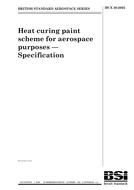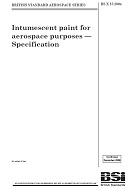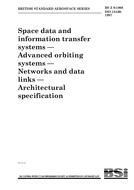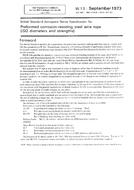Description
This major work specifies requirements for the material, design, manufacture, inspection, testing and verification of compliance for unfired fusion welded pressure vessels manufactured from carbon, ferritic alloy and austenitic steels, aluminium, copper and nickel used in a wide range of process and energy industry applications.
The term ‘pressure vessel’ as used in this specification includes branches up to the point of connection to the connecting piping by bolting, screwing or welding, and supports, brackets or other attachments directly welded to the pressure-containing shell.
PD 5500 is applicable to vessels subject to electrical heating or heated process streams. It excludes, however, those that are subject to direct generated heat or flame impingement from a fired process.
Key 2012 revisions
- Clarification of the use of subcontractors.
- Tubesheet minimum thickness requirements for large tube diameters.
- Clarification of the requirements for static head in the evaluation of test pressure.
- Revisions to the impact testing requirements of Annex D.
- Inclusion of a new enquiry case 5500/139 for the ISO 16528-2:2007 Conformance Tables.
Pressure Equipment Directive complianceThis new edition allows vessel owners and operators to continue to support equipment and systems previously designed and manufactured to BS 5500 or PD 5500 in the context of repair, maintenance and replacement. It also allows previous users of BS 5500 and PD 5500, who do not supply into the European Union, to continue to utilize their experience along with existing designs and process procedures derivedfrom the application of a comprehensive and well developed pressure vessel standard.
PD 5500 can provide a basis for vessel design and manufacturewhen the European Union’s Pressure Equipment Directive (PED)is applicable but where the European Standard BS EN 13445does not provide an appropriate solution for the vessel’smaterials and design conditions.
Although PD 5500 does not carry the ‘deemed to comply’ status that is conferred through the use of BS EN 13445, this difference can be accommodated by the manufacturer identifying how the PED’s essential safety requirements have been met, utilizing the guidance given in an annex to PD 5500.
Product Details
- Published:
- 09/30/2012
- Number of Pages:
- 1024
- File Size:
- 1 file , 57 MB
- Note:
- This product is unavailable in United Kingdom




